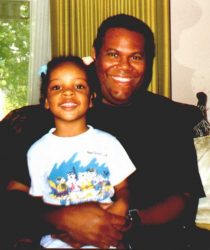People Will Leave Your Life
Posted by Mitch Mitchell on Apr 25, 2022
Lately I've been thinking about how people leave your life. It started by thinking about my mother leaving my life last September, moved to when my dad passed away on Father's Day back in 2002, and then thinking about some of the people I considered as some of my closest friends, and how life sometimes permanently separates us without warning.
 |
It reminded me of a time many years ago when I was first getting into the internet, though I'd been playing with computers for a much longer period of time. There was this guy I'd met at work, Walt, who was really into it, a much older guy than I was at the time, and he knew so much about the internet and all its wonders that we developed a pretty close relationship. He would send me all sorts of things through email, then we'd talk about them at work. Then, one day, he was gone; he'd had a heart attack that Friday night, and I'd been wondering why I hadn't heard from him all weekend until I got back to work on Monday. It was heartbreaking.
Being a military kid, one of those things you learn when you move around a lot is that people will fall out of your life, and sometimes no matter how hard you try, you just can't hold onto those people because life gets in the way. I remember moving as a 10 year old halfway across the country and writing letters back and forth to my best friend at the time, a guy named Carl. We made it four months before the letters stopped.
About six years later I had a different friend named Carl when I moved once again, and we made it less than two months. From high school, I now keep in touch with only 3 or 4 people; from college, maybe another 10 or so. From all the places I worked at as an employee, maybe 10 or 15. None of them consistently, but we can find each other when necessary.
Obviously, the same type of thing applies to working with people in the workplace and in business. People leave our lives for a variety of reasons, and, luckily, if you're in a position of leadership, most of the time it's their choice. Most managers really do hate firing people.
I've known some managers who have screamed at an employee for giving them a resignation letter; I've known many others who have told an employee to make that day their last. Sometimes it's warranted; most of the time it's not. People sometimes have problems keeping their emotions in check when they're tense, and most of the time I figure that these managers have been caught off guard and don't know another way to react.
I've always figured that's why this Senior VP of Finance at a hospital in NYC fumed about me for at least a year after I left, because I left on my terms instead of his (I smiled because I heard about him doing it and almost everyone he tried telling it to were happy for me because he wasn't trustworthy and not that nice of a guy lol).
Here's something to think about. The reasons why people leave should give you, as a leader, a chance to learn something about yourself and the company you work for.
If people leave because of you, then you know you need to change something about yourself. If people leave because they have a problem with the company for some reason (low pay, lousy benefits, etc), unless you're the owner you know there's nothing you can do about it, but maybe you can talk to upper management about your issues in hopes that some things can change (this is a major problem between employees and employers at the present time).
If people leave for better opportunities, you should take pride in yourself for training someone so well that they've been able to score what amounts to an advancement. If people leave for reasons that have nothing whatsoever to do with you or the company, such as a spouse is moving or they have to go take care of a sick relative, wish them well and allow both sides to leave it on good terms.
Both sides should always find a way to leave things on good terms anyway; after all, you never know when the two of you might meet again. Always remember that some people, probably most people, will leave your life in some way. We all have to learn how to deal with it.

